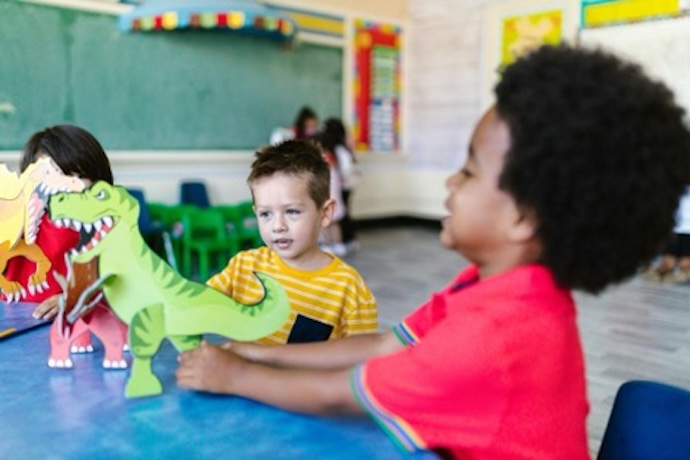Carefree days have flown by; it's time for kids to put their thoughts in order. Preparing for the school year is a laborious process for both children and parents: you need to sort out things - what is outdated and what is suitable, get into a routine, and mentally prepare for the new workload. It is important to take the age and grade of the child into account because everyone has their own needs. We have collected the main activities: what you need to think about in advance and what actions you need to take.
One of the most important things for a parent is to be prepared for the fact that the child may have problems with doing homework. The most energy-consuming way to solve them is to turn to anonline coursework writing service that can help with various types of assignments. In this way, you will save your kids' nerves and yours as well.
Preparing for the School Year
Making a Shopping List
You should start getting ready for school by making a shopping list. This will help you approach the matter in a more organized manner.

Going shopping for supplies is especially important for preschoolers: they are choosing their first accessories. Invite your future first-grader to think with you about what exactly they will need for lessons: for example, a set of pencils, a backpack, notebooks, etc. This will help the child to feel more confident at school.
In elementary and middle school, look through your child's things together. Do last year's clothes fit? Are there enough pens and pencils? Is the backpack torn? High school students can assess the condition of things themselves.
Write down the necessary items and combine them into groups for easy searching. A sample list might look like this:
● Textbooks. Check whether your kid has enough of them.
● Backpack. It should hold all the necessary things.
● Stationery. Buy notebooks, A4 paper, a pencil case and its contents — pens, pencils, sharpeners and erasers, rulers, and a stapler.
● Everything for creativity. These are paints and brushes, felt-tip pens, markers, sketchbooks, etc.
● Home equipment. A student should have a tablet, computer or laptop, flash drives, printer, etc.
● Workplace. Your kid should have a comfortable table and chair, a lamp, organizers for office supplies and useful little things.
Preparing Children of Different Ages
Tips for Preparing Preschoolers and First-Graders
During preparation for the first school year in their life, preschoolers experience both psychological and physiological stress. The child spends a lot of resources to cope with the new experience: it is necessary to follow many unusual rules, maintain attention for a long time, and do what adults require of them.

Therefore, future first-graders during this period may get tired faster than usual and be capricious. The main task of parents is to support their children on this difficult path and help them adapt to the regime as smoothly as possible.
Let the child choose the stationery, clothes for school, and backpack that they like because they will interact with these things every day. They should not spoil their mood and darken their days in school.
Let your child look through new textbooks and notebooks and try out the pencils and markers you bought — crisp, fresh pages, beautiful covers and illustrations, and bright colors will help them get into a positive mood. Perhaps you should read some of the topics in the textbook — the child will become interested and will look forward to the first lessons.
Discuss important organizational issues: how to turn off the sound on the phone and where to put it during the lesson, what to do if you want to go to the toilet during the lesson, how to address the teacher politely, and so on.
Recommendations for Preparing Elementary School Students
When the child starts getting grades, this becomes an additional stress. Now, for mistakes in an assignment, they can get a low grade; this is shameful, and mom will scold you. Explain that grades do not characterize the child as a person: if they get a C, this does not mean that they are bad - a specific task was done poorly. Also, explain that grades do not always reflect real knowledge and that mistakes are a normal part of anylearning process. Only those who do nothing make no mistakes.
Preparing Teenagers for Middle School
In middle school, complex subjects appear - history, geography, biology, physics, and computer science. It is important for parents to mentally prepare their children for new subjects and help them find the motivation to study them.
For example, give them a star map and show where the planets of the solar system are, and also give an example of how these objects are studied in astronomy lessons. If you have the time and desire, conduct simple and safechemistry experiments at home, which can be easily found on the Internet. To interest them in computer science, explain that during classes, the child will study cycles, operators, variables, and functions - and in the future, will be able to quickly understand programming.
Also, discuss with the child what you liked (or did not like) in these subjects, which topics were easy for you, which were difficult, and why.
Preparing Teenagers for High School
In high school, teenagers face the most important tasks: to understand themselves and decide in which area they would like to develop and apply their skills, choose a professional path, and go through an admission process to enroll in a college. Here, they need psychological support from adults they respect.

The main thing to remember is that parents should not pressure or make a choice for their child. Let young people decide for themselves what they would like to do. Discuss with a child which option seems preferable to them.
It is worth discussing that life after college admission is not the end. Even if it is not possible to enroll in the school they want, you will be there to help them find other options.
Before the start of the school year, help the teenager organize their time: discuss the direction of preparation and make a plan. In it, it is necessary to allocate hours for both classes and hobbies and proper rest. Consider the workload your child will have at school and how it all fits in with extracurricular activities. Perhaps they will have to give up something, and here, your teenager needs your help in determining priorities.
Written by:
Michael Fowler
Michael Fowler has a degree in Classical Philology. He has been working at EssayShark since 2020. He proofreads, edits, and writes content from scratch. In his articles, he helps students understand complex issues and find motivation and opportunities to achieve academic goals.












Ashley Pugh ;
Ashley Pugh is one of the Co-Founders of Familydaysout.com and has been committed to writing family related content since 2008. There isn't much about family attractions that Ashley doesn't know, after visiting hundreds of them worldwide over the last 20 years.
Leave a comment